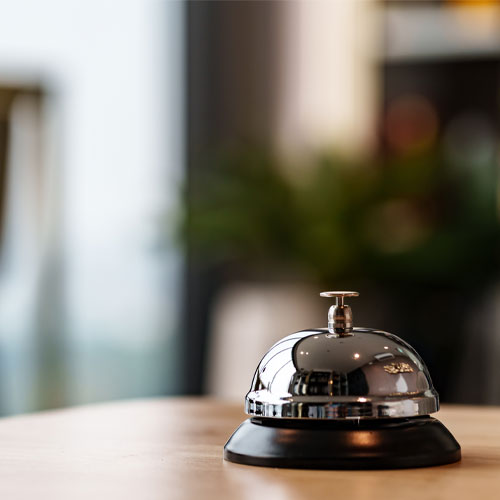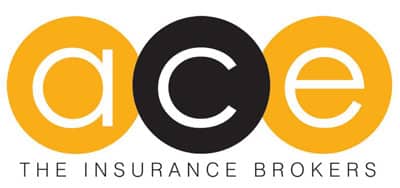
Hotel Insurance
Compare Hotel Insurance Quotes
- Complete one short form
- Quickly compare quotes
- Find a great deal today

Compare hotel insurance quotes from the UK’s leading business property insurers including;
Why Compare Cheap Hotel Insurance At SimplyQuote.co.uk
Anyone in the hospitality sector knows how little time you have for admin; with customers keeping you busy left, right and centre!
That’s why SimplyQuote, through its partnership with Quotezone, offers a 100% free online comparison tool—to streamline the process without taking up hours of your day.
Quickly filter through multiple insurance quotes from top-class insurance providers in a matter of minutes; and find the best deal suited to you, your business and your budget today.
Simple.
What Do You Need To Get A Quote?
Please provide the following information:
- Personal details – name, contact info
- Hotel details – nature of business (guest houses, motels, luxury hotels, etc.), size, rebuild value
- Business details – company registration info, VAT details, risk management assessment, how many employees
- Policy details – how much cover are you interested in? Optional extras?
- Insurance details – claims history
Why Do You Need Hotel Insurance?
The only insurance policy hotels are required to have by UK law is employers’ liability insurance – if you employ staff at your premises. However, opting for full hotel cover is advisable to cover unforeseen costs that may arise when managing a hotel.
Successful hotels are often busy, and that hustle and bustle can lead to many perils that hotels then have to face.
Many don’t know that property damage and lawsuits can arise out of things that might not necessarily be linked to standard hotel operations. Some additional areas that increase risk include:
- Special event facilities
- Swimming pools
- Spas
- Fitness centres
- Restaurants
- Airport shuttle vehicles
- Golf courses
Accidents will inevitably happen at some point, so having this specialist cover can mean transferring the cost of certain risks to the insurance company instead of dealing with it yourself.
Some hotel owners avoid getting insurance because they either don’t want the extra expense or think that their type of hotel can’t be covered, which is not the best approach to running a hotel business.
Always remember that policies can be tailored to fit the risk profile, needs of a business, and budget of a business.

What Does Hotel Insurance Cover?
Hotel insurance is a type of commercial business insurance that covers:
Public liability insurance
If someone gets injured or has their property damaged within the hotel premises, you can claim public liability insurance. This insurance will cover compensation claims and legal expenses if a third party decides to take you to court.
Employers’ liability insurance
Employers’ liability cover is a legal requirement in the UK. It protects businesses and employees by helping them meet the cost of compensation should an employee fall sick or get injured while fulfilling their duties. Failure to have employers’ liability insurance can result in further legal trouble (£2,500 daily fine!).
Business interruption cover
Business interruption insurance is a key component of business insurance and should always be a part of your hotel insurance policy. If your business is forced to close due to uncontrollable circumstances, this cover can keep you financially stable so that operations carry on as normal when you resume them.
Buildings insurance
Buildings insurance will provide cover for the cost of repairs and full rebuilds should your hotel’s building be damaged through an accident, vandalism, or natural disaster.
Contents insurance
This covers business assets such as furniture or equipment in the event of theft or damage from fire or flooding. Contents insurance typically covers equipment breakdown as well.
Public and products liability insurance
If your hotel has a restaurant and a guest gets food poisoning from eating it from that restaurant, they might seek compensation. Product liability can keep you covered in this regard.
Stock insurance
Whether you’re dealing with raw materials, finished goods, or office supplies, stock insurance can cover the cost of replacing stock items should they go missing, be stolen, or get damaged.
Guest effects
This policy covers costs in the event guests (or employees’) personal belongings are damaged, lost or stolen. It may or may not be ‘standard’ with some insurance providers, so do check the finer details with them.
What’s not covered
- Normal wear and tear due to poor property maintenance
- Costs arising from negligence – not locking the office and equipment/cash being stolen
- Intentional/malicious damage caused by the hotel owner (to claim insurance payout)
- Guests’ property – this may be covered in certain insurance policies
- Damages caused by guests – they are liable for the costs incurred (but must be an act of intentional/reckless behaviour)
What kind of hotels does this insurance cover?
- B&B
- Resort
- Spa hotel
- Eco hotel
- Guest house
- Motel
- Luxury hotel
- Boutique hotel
- Holiday cottage
- Apartment hotel
What Add-Ons Are Available For Hotel Insurance?
There are many optional extras you can add to your basic hotel cover:
Money cover
insures cash takings on site, usually to a maximum limit.
Cyber attack cover
protects you against cyber-attacks/data hacks. Beneficial for medium and large-scale hotels.
Contractors’ risk cover
if a contractor hurts themselves or causes damage to your hotel’s property while working there, contractors’ risk insurance can cover the necessary costs.
Alternative accommodation
is generally most useful when there is an interruption of sorts. If your hotel needs to close for some reason or can’t place guests in certain rooms, it is worth looking into insurers to cover the cost of finding guests alternative accommodation.
Personal contents cover
if you or any staff members happen to live at the hotel itself, then personal contents insurance is ideal for protecting your possessions in the event of damage or theft.
Loss of license insurance
this policy covers legal expenses/losses should your hotel restaurant/bar alcohol licence be revoked.
Emergency cover
covers the costs of 24/7 emergency services, such as plumbers or electricians.
How Much Does Hotel Insurance Cost?
Basic hotel insurance can start from as little as £3.59 per month. However, the bigger (and/or more luxurious) your hotel is, the higher your insurance premium.
Insurance providers consider many things when calculating the price of your insurance, from your hotel rating and occupancy rate to claims history.
What impacts insurance premiums?
- Size – the larger your hotel, the more you can expect to pay to insure it.
- Your rating – hotels under three stars are a cause for concern as their rating is considered lower than average.
- Occupancy rate – between 70% and 90% is considered good within the hotel industry, whereas below 55% is seen as far from ideal.
- Location – if your hotel is located in an area with a high crime rate, you can expect to pay more for insurance. Another factor, as far as location is concerned, is the weather or environmental risk. For example, insurers may consider a hotel located on a beach to be riskier to insure.
- Exterior room entrances – forced entry tends to be more common when a hotel room has an exterior entrance, so they’re less secure and more expensive to insure.
- Claims – if your hotel has what can be deemed as an excessive amount of claims on its account, then it can be seen as an insurance risk.
- Amenities – leisure facilities such as swimming pools, bars, and gyms are all factors that can drive up the cost of your hotel insurance policy; this is because of the added risk they present. Always ensure your policy covers your hotel’s amenities.
How Can You Get Cheaper Hotel Insurance?
Here are a few tips to keep your hotel insurance premiums down:
- Keep up with property maintenance to minimise wear and tear. Fixed damaged facilities ASAP.
- Prioritise safety with CCTV cameras, secure parking lots and burglar bars.
- Pay annually (via direct debit) as opposed to monthly instalments to eliminate interest rates.
- Keep rooms full to prevent them from standing empty (i.e. increase your occupancy rate)
- Maintain your hotel rating above 3 stars
- Downsize your hotel accommodation (if possible) – consider downscaling if you only have 60% occupancy in a 100-room hotel
- Compare quotes from various insurers, via the SimplyQuote.co.uk online comparison tool.
- Only opt for insurance products you need (i.e. optional extras)
- Offer additional support/staff training on how to manage risks (e.g. food safety/HACCP training to minimise food poisoning)
- Regularly check the condition of your hotel and its facilities including gyms, pools and dining rooms.
How To Compare Hotel Insurance Quotes At SimplyQuote.co.uk
It’s simple and stress-free to use SimplyQuote.co.uk to compare hotel insurance products:
- Fill in the quick questionnaire with a few details about yourself, your hotel and location.
- Select the policy add-ons/optional extras that are best suited to your business operations.
- Quickly compare quotes with the free, online comparison tool to find the best deal.
- Reap cash-saving rewards today!
Frequently Asked Questions
Hotel insurance is a form of business insurance designed specifically to protect the operations of a hotel should anything go wrong.
Here are some of the most common hotel hazards:
- Handling tasks – many hotel staff injuries are related to them performing manual handling tasks such as moving stock from one point to another.
- Trips and falls – Whether it’s in the kitchen or hotel lobby, staff and guests aren’t immune to the possibility of slipping in an unmopped puddle of water. For this reason, staff should always wear nonslip shoes and clean up messes as soon as possible.
- Harmful chemicals – Because hotels need to maintain incredibly high standards in terms of safety and cleanliness, they often use a number of hazardous chemicals to clean their facilities. These chemicals can cause a great deal of harm to the human body, so preventative measures and comprehensive cover are key in this case.
- Business interruption – Whether it’s a global pandemic, dreadful weather conditions, or loss of licence, hotels are extremely susceptible to having their operations interrupted. When businesses can’t operate as normal, they can experience immense financial losses.
Here are a few reasons why people would sue hotels:
- Insufficient security.
- Being irresponsible with supplies, keys, or keycards.
- Failure to sanitise sheets, blankets, and pillows.
- Not providing reasonable services such as safe parking.
More often than not, hotels reserve the right to charge guests for the cost of rectifying damage, but the damage has to be caused by an intentional, negligent, or reckless act on the part of the guest. Such cases can result in a legal dispute, so having appropriate cover is key to finding quick resolutions and ensuring operations aren’t interrupted.
Written by Chris Richards
Page last reviewed on 22nd January 2025 by Chris Richards


